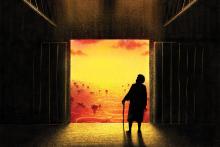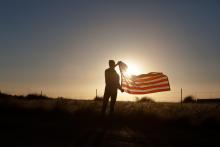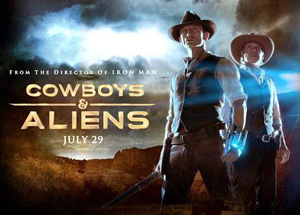manifest destiny

NOAH'S ARK IS a strange children’s story. We decorate nurseries and bedrooms with animals marching two-by-two. The images festoon baby items and fill the pages of countless children’s books. I’ve sat on the floors of many church nurseries playing with babies and Noah’s ark toys and questioned its appropriateness. I’ve thought about Noah and his family closing the door and being sealed inside. I’ve thought about them hearing the sound of rain and the people banging desperately on those closed doors. I’ve thought about the cries and the banging becoming quieter and quieter, about the gut-wrenching silence as the voices were swallowed by the sound of rain.
In a recent essay on her blog, Life is a Sacred Text, Rabbi Danya Ruttenberg notes that while the Bible calls Noah a “righteous man, blameless in his generation” (Genesis 6:9), the Zohar, a Kabbalistic text that first appeared in 13th century Spain, doesn’t see him so favorably. The author ties him not to the survival of the animals but to the deaths of everyone else. “Noah did not plea for mercy on behalf of the world, and they all perished, because the Holy One ... had told him that he and his children would be saved by the ark” (Zohar 1:67b). Noah’s complicity in the people’s deaths is so bad that, in Isaiah, the floodwaters are named after him: “For this is as the waters of Noah to me; as I have sworn that the waters of Noah should no more go over the earth” (Isaiah 54:9, emphasis mine).

Since the rule of Constantine in the 4th century A.D., church leaders have lived precariously close to showing preference and promoting one political leader over another. The Rev. Billy Graham came to regret his close ties to Richard Nixon, who used "America's Pastor" to his political advantage.
A prophetic distance must be maintained, allowing space between what the Spirit and the Word might say in any given situation, and the political leader or policy in question. The role of prophetic analysis requires distance so as to avoid compromise.
Then, too, we see how important it is not to make our rendition of the Gospel synonymous with a particular view of economics, role of government, social management or civic engagement. After watching Christian leaders running to the beck and call of Nixon, Chuck Colson warned us that the kingdom of Christ does not arrive on Air Force One.

What does it mean to be exceptional?
Most people have to worry about making enemies. You know, they’re constantly freaked out that they might offend somebody or hurt somebody’s precious feelings. But I don’t worry about that. I’m exceptional. Other people in my family worry about everyone getting their fair share at the dinner table. They might really like mashed potatoes or lasagna, but they only take a normal small portion so that their sister or grandmother or cousin can have some too. But I don’t worry about those sorts of things. After all, I’m exceptional. I take as much as I want.
When you’re an exceptional nation, you want other nations to worry about your opinion of them. You don’t really care what their opinion is of you. When you’re a run-of-the-mill country, you’ll be nervous about going against the United Nations or the Geneva Conventions or the International Criminal Court and such, but when you’re an exceptional country, that sort of concern is beneath your dignity. You set expectations; you don’t fulfill them. Of course, with exceptional status comes exceptional responsibility, so we have the sole responsibility to drop nuclear bombs on nations that cause problems for the world—unexceptional nations, that is, which means everybody else but us. It’s a tough job, being exceptional, but somebody has to do it.
Between now and the elections in November, my guess is we’re going to hear the term “American exceptionalism” echoing from the mountains to the prairies to the oceans white with foam; echoing ad nauseum. It’s become a powerful political meme in recent years, popular but poorly defined. The history of the term aids and abets in its vagueness.
Thomas Jefferson repeatedly spoke of the United States as a unique—or exceptional—historical phenomenon. As a democratic republic, it differed from Europe, and all the nations of the past. Since then, of course, scores of nations have followed our example in forming democratic republics, so what was exceptional in Jefferson’s time has now, we might say, become the norm.
Does that make us “the nation formerly known as exceptional,” but now typical?
 Americans have a hard time knowing how to respond to the sins of our colonial past. Except for a few extremists, most people know on a gut level that the extermination of the Native Americans was a bad thing. Not that most would ever verbalize it, or offer reparations, or ask for forgiveness, or admit to current neocolonial actions, or give up stereotyped assumptions -- they just know it was wrong and don't know how to respond. The Western American way doesn't allow the past to be mourned or apologies to be made. Instead we make alien invasion movies.
Americans have a hard time knowing how to respond to the sins of our colonial past. Except for a few extremists, most people know on a gut level that the extermination of the Native Americans was a bad thing. Not that most would ever verbalize it, or offer reparations, or ask for forgiveness, or admit to current neocolonial actions, or give up stereotyped assumptions -- they just know it was wrong and don't know how to respond. The Western American way doesn't allow the past to be mourned or apologies to be made. Instead we make alien invasion movies.